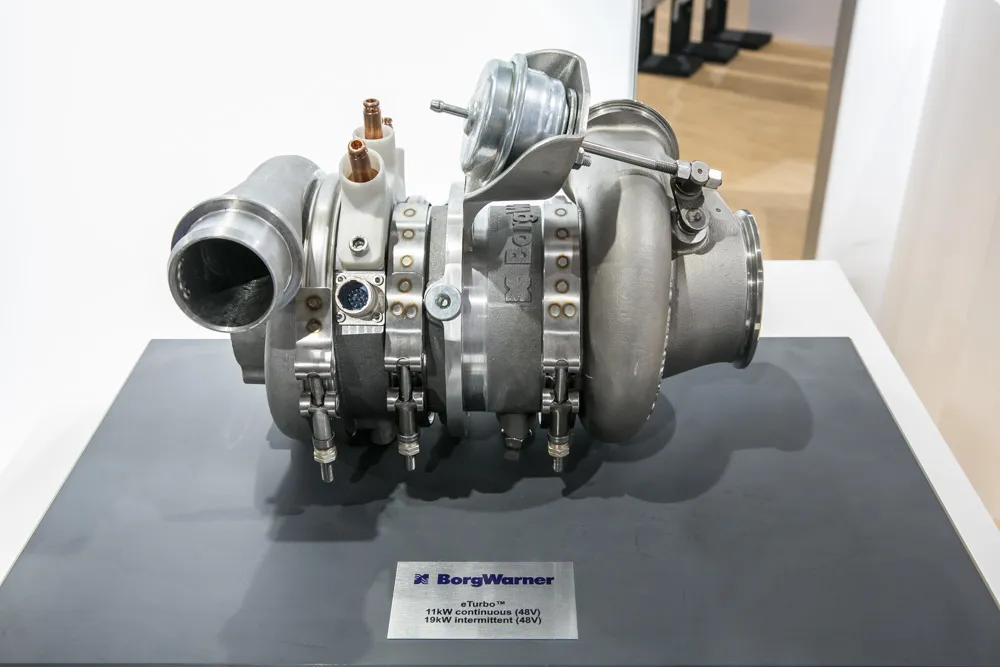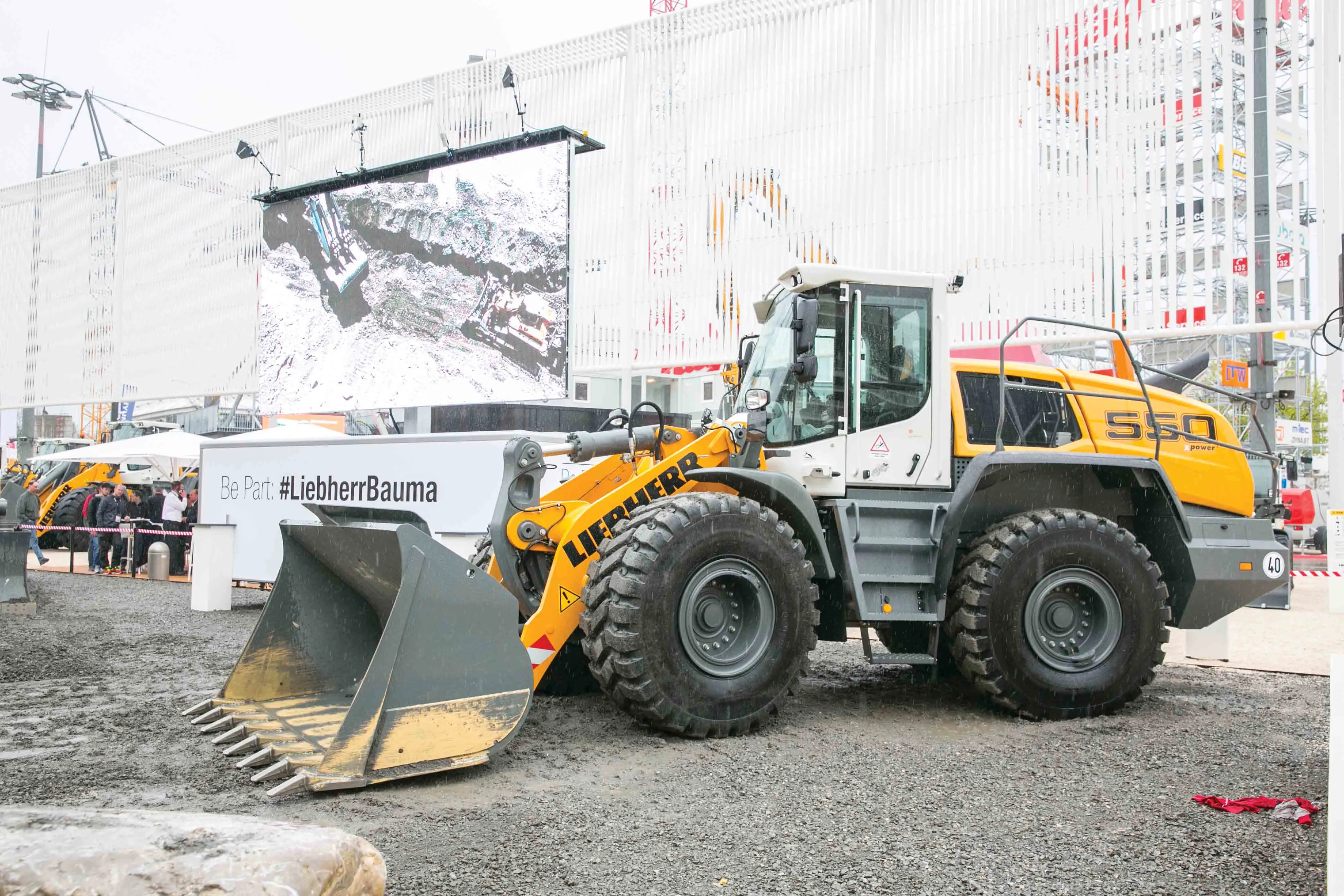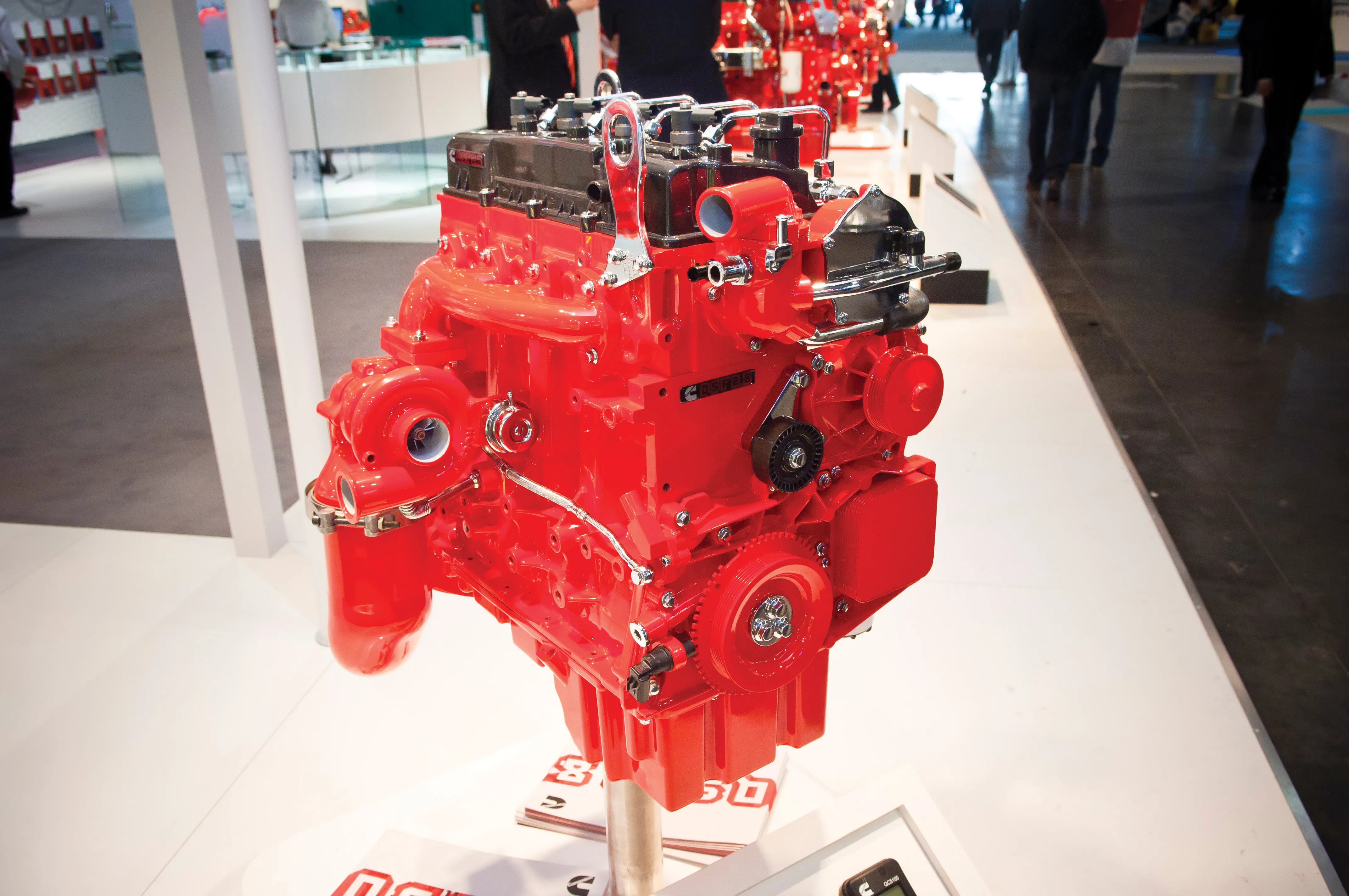The challenges faced by engine developers to manage transient response times with turbocharging could be solved by Borg Warner. At CONEXPO-CON/AGG, the company showed its eBooster electrically-driven compressor, which is now available to off-highway OEMs.
March 13, 2017
Read time: 1 min

The challenges faced by engine developers to manage transient response times with turbocharging could be solved by
Using a 48-volt electric supply, the eBooster delivers boost on-demand until an engine’s main turbocharger catches up and builds enough pressure to take over. At this point, the electrically-driven compressor stops running.
This technology is said to assist smaller, more fuel-efficient engines in delivering the power and torque of larger displacement engines. Borg Warner’s eBooster is equipped with a water-cooled core, and permanently lubricated bearings.








